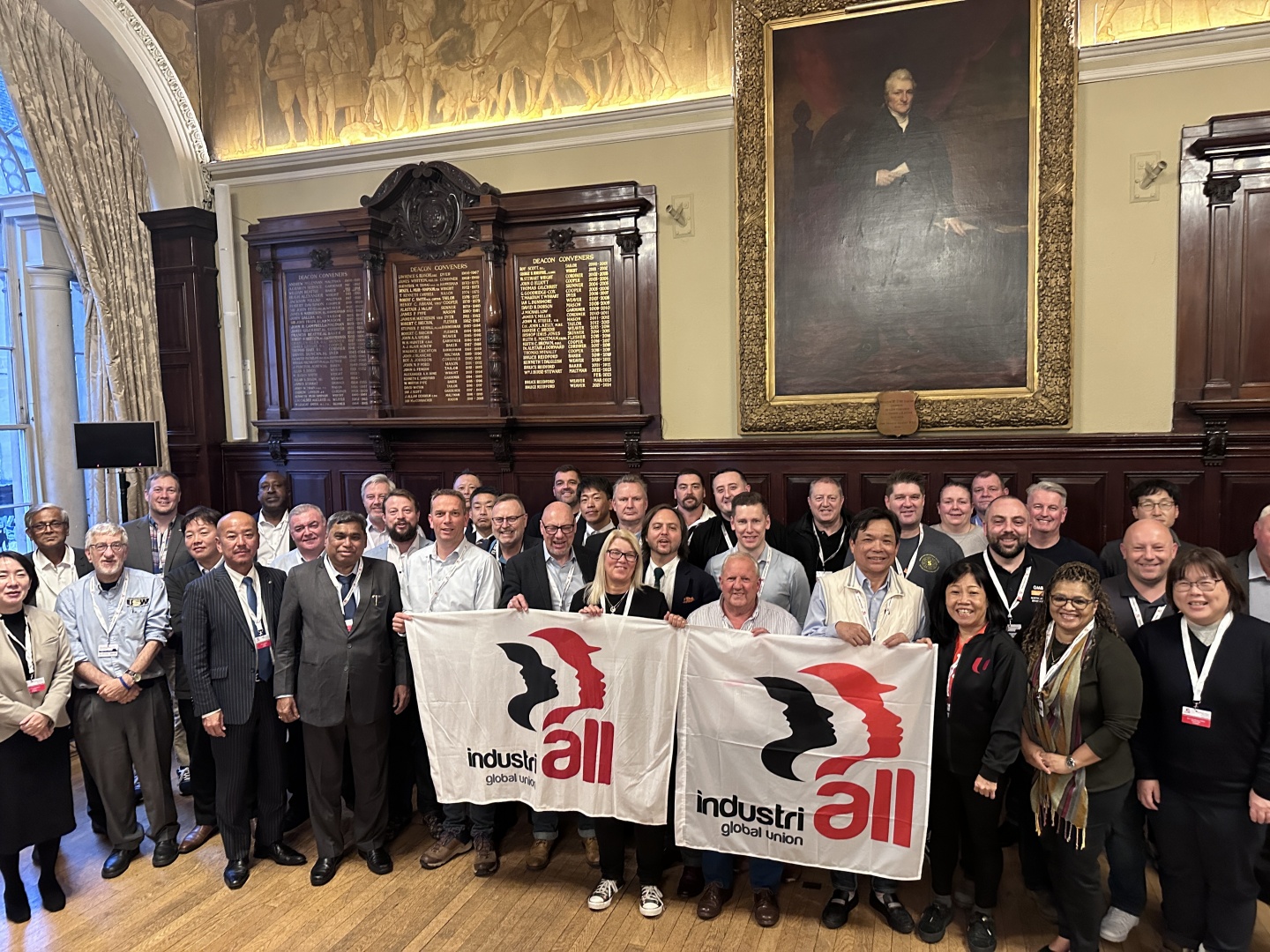17 October, 2024Union leaders from 16 countries gathered in Glasgow, 15 and 16 October, at IndustriALL’s shipbuilding and shipbreaking world conference, uniting around a vision for safer, fairer, and sustainable industry standards in two of the world’s most dangerous sectors. This forum called for bold change, demanding stronger worker protections, sustainable practices, and global solidarity.
Eileen Yeo Chor Gek, sector co-chair says:
“Unions are essential in creating an inclusive transition to new technologies. We must secure fair labour practices, job stability, and balance for all.”
“Health and safety are the lifeblood of our industry. We’re here to share knowledge and find solutions to improve lives on the ground,”
says Masoa Tusmura, sector co-chair.
Vidyadhar Vasudeo Rane, sector vice chair says:
“International cooperation is the foundation of worker safety. The Hong Kong Convention, marks a transformative step.”
Sector director, Walton Pantland, gave a sector overview highlighting challenges in these sectors:
“Our industry faces intense challenges—from technological changes to gender imbalance and labour shortages. We must bring in fresh talent, focus on safety, and push for equity across generations,”
says Walton Pantland.
A focal point of the conference was the impending enforcement of the Hong Kong International Convention for the safe and environmentally sound recycling of ships, set to take effect in June 2025.
This landmark agreement introduces critical protections: mandatory health and safety training, enforced removal of hazards before any shipbreaking, and clear accountability requirements for recycling plants.
However, delegates also voiced concerns about ongoing challenges, including low compliance rates, intense commercial pressures, and weak legal enforcement. The Convention represents progress, but delegates agreed it must be backed by strong international solidarity to hold governments and companies accountable for worker safety.
Delegates from Australia, the U.S., Singapore, Korea, Japan, the Netherlands, Bangladesh, India, Denmark, France, Finland, Norway, Taiwan, Spain and the UK highlighted common concerns such as labour shortages, lack of female representation, organizing migrant workers, and the fast expansion of Chinese production. The forum concluded with a clear message: building robust unions, strengthening social dialogue, and uniting globally are essential.
Going forward the sector will focus on worker rights and safety by using collective bargaining power to prioritize long-term worker interests, create a health and safety network, and champion hazard-sharing best practices. The focus will also be gender and youth inclusion by sharing strategies to improve women’s representation, developing global mentorship programs for female union activists, and include young and white-collar workers.
Further steps include increasing global union strength by fosterIng union cooperation, integratIng migrant and contract workers into collective agreements, form networks in multinational companies and a focus on sustainability and skills development by coordinating with the OECD, supporting Just Transitions in shipbreaking, and advocating for continuous skill development and accessible qualification pathways.
Christina Olivier, assistant general secretary says:
“Now more than ever, we must fortify social infrastructure, ensuring unions can organize and advocate for safer, fairer workplaces.”










